
Dumped in "nowhere in the dark of night" by Serbia near Croatian border at Strosinci Marko Drobnjakovic / Keystone
According to Wall Street Journal (which is also the figure given by Croatian HRT TV news) 67,000 refugees and illegal migrants have come into Croatia over the past 10 days. Confusion, rather ugly and unnecessary recriminations and diplomatic spats between Serbia, Croatia and Hungary gripped the nations throughout the past week and Croatian authorities struggled to keep up with the massive influx, constant flow of refugees crossing from Serbia. Croatia at first welcomed the migrants, thinking they would transit through to Slovenia, Austria and then Germany. But Slovenia refused to let the people pass, leaving Croatia responsible for tens of thousands of people. The government in Zagreb then accused Serbia of shunting the refugees into its territory and closed the border pass near Tovarnik which led to a standstill for the cargo trucks crossing into and out of Serbia. Hungary had shut itself from Serbia by building a high fence. Most refugees reaching Croatia from Serbia were and are given temporary shelter in a recently built refugee reception centre in the village of Opatovac near the Serbian border, not far from Tovarnik. Then they are usually taken on buses and trains to three border crossings with Hungary.
Hungary’s Prime Minister Viktor Orban said earlier this week his government would continue erecting fences on its borders with fellow European Union member states Romania and Croatia that are outside Europe’s document-free Schengen travel zone; they have already completed the fence between Hungary and Serbia, which in fact triggered the massive influx into Croatia.

Leaflet given to refugees while in Serbia. At a border crossing near Bapska, Croatia, volunteers distributed fliers telling refugees they were in Serbia and would get passage to Austria.Photo: Max J. Rosenthal
Relations between Croatia and Serbia heated up to almost the 1990 level when Croatia announced it would secede from communist Yugoslavia and Serbia started “sharpening its knives to attack Croatia” in the event that Croatian people actually seceded from Yugoslavia. However, after an emergency meeting Friday (25 September 2015) night, Serbian Prime Minister Aleksandar Vucic told Croatian state TV that Serbia will "absolutely" lift its embargo on Croatian goods. Croatian Prime Minister Zoran Milanovic said he lifted the blockade, reopened the border crossings at Bajakovo and Tovarnik, but that he may reinstate the blockade again if Serbia keeps on busing migrants to the Croatian border instead of sending at least some of them up north to the border with Hungary. Croatian government believes that Serbia has reached a secret deal with Hungary over refugees and is deliberately sending them towards Croatia after Hungary sealed its borders in mid-September. And I personally wouldn’t put such a dirty trick past Serbia, either!
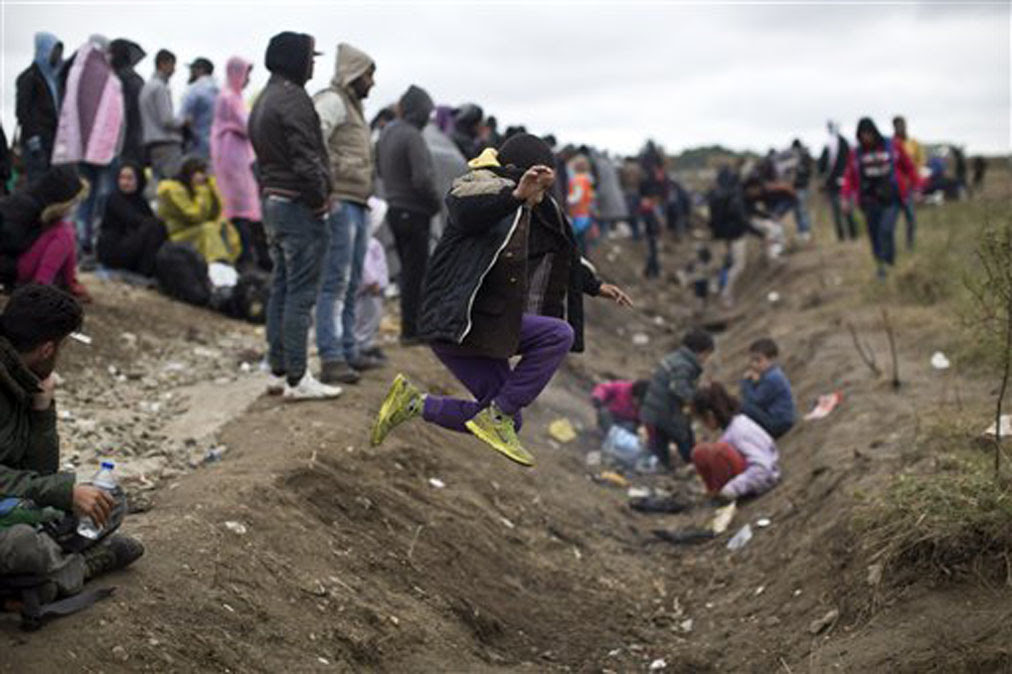
A child jumps over a ditch as people wait in order to clear a police line after entering Croatia from Serbia in Strosinci, Croatia, Conciliation replaced confrontation among European nations which have clashed
over their response to a wave of migration, but confusion faced many asylum-seekers streaming into Croatia on Saturday in hopes of chasing a new future in Western Europe. Saturday, Sept. 26, 2015
Photo: MARKO DROBNJAKOVIC — AP Photo
over their response to a wave of migration, but confusion faced many asylum-seekers streaming into Croatia on Saturday in hopes of chasing a new future in Western Europe. Saturday, Sept. 26, 2015
Photo: MARKO DROBNJAKOVIC — AP Photo
Cooperation replaced confrontation Saturday among European nations as thousands of asylum-seekers streamed into Croatia in hopes of creating a new future in Western Europe. At least 10,000 arrived on Friday alone, and Croatian authorities struggled to keep up with the influx of those fleeing war and poverty in the Middle East, Africa and Asia.
Sent here from Belgrade, Serbia
migrants found themselves
not knowing where they were
in the wilderness near Strosinci, Croatia
Photo: REUTERS/Antonio Bronic
not knowing where they were
in the wilderness near Strosinci, Croatia
Photo: REUTERS/Antonio Bronic
At one tiny border crossing point, Croatian police said thousands were abandoned at a remote crossing after Serb authorities bused them to a point near the village of Strosinci and left. Unclear where they were, the migrants tried to cross into Croatia, but got lost in the nearby cornfields. Croatian police found them, and called in buses to take the travelers to the nearby transit camp at Opatovac, but individual families were separated in the chaos.This new crossing at Erdut through the village of Strosinci into Croatia from Serbia has emerged during the night between Friday 25 September and Saturday 26th. Serbia’s buses filled with refugees were driven to the nearby stretch of forests, fields throughout the night and refugees dumped there in the dark of the night to find their way across the fields and forests into Croatia. The refugees slept in the cold fields and were evacuated by Croatian authorities as it was feared that the heavy rainfall that occurred in the night might have dislodged the landmines in the forest still there from the war, left by Serbs, posing a real threat to refugees’ lives.
In unusually blunt but perhaps necessarily decisive language, Croatia’s President Kolinda Grabar-Kitarović had during the week criticised on Croatian Nova TV Germany’s Chancellor Angela Merkel and just fell short of accusing Merkel of causing “chaos” in Europe.“Mrs Merkel called them, and now she’s pulled the handbrake by saying Germany cannot absorb all these economic migrants,” Grabar-Kitarovic told Croatian television. “She makes out as if she wasn’t aware that pulling the handbrake when so many cars were on the road would cause chaos. This needs to be resolved now.”As one would expect there were those who supported this commentary and opinion regarding Merkel’s actions in this refugee crisis expressed by Croatia’s president Grabar-Kitarovic and, of course, there were those who criticised Grabar-Kitarovic, saying she had insulted the German Chancellor. Croatia’s Prime Minister Zoran Milanovic was the first in Croatia to characterise President Grabar-Kitarovic’s assessment of Merkel’s actions as insulting to Merkel. But one wouldn’t expect much better from a Prime Minister who is struggling to keep afloat amid the shockingly damaging performance to the Croatian economy by his government in this per-elections period.
The fact is that while Greece, Serbia, Hungary, Macedonia were splitting at the seams, paralysed in attempts to cope with the unbearably large numbers of refugees trying to reach the richer EU countries such as Germany, Sweden, Netherlands…Angela Markel kept encouraging the refugees on to take the perilous journey by saying they are all welcome in Germany! Indeed Merkel’s “calls” to the refugee had caused Hungary’s Victor Orban to express harsh words against Merkel and Germany this last week as well as before. Extraordinary scenes played out at an emergency European Union (EU) summit in Belgium on 23 September after the president of the European Council, Donald Tusk, criticised Germany’s “invitation” to migrants and warned the crisis had only just began.
The Hungarian Prime Minister Viktor Orban then accused Germany of “moral imperialism”. French president Francois Hollande responded by telling Orban he should “respect European values” or leave while Slovakia reaffirmed its commitment to defy forced migration quotas.The European Council president Donald Tusk in a thinly veiled attack on the German chancellor Angela Merkel said: “It is likely that more refugees will flow towards Europe. Especially as almost all of them feel invited to Europe,” referring to Merkel’s promise to offer asylum to any Syrian this August, no matter how many safe countries they pass through, and regardless of whether or not they come from a dangerous region.
“The most urgent question we should ask ourselves tonight is how to regain control of our external borders… Otherwise it doesn’t make any sense to even speak about common migration policy. What is at stake is also the future of Schengen, the sense of order in Europe and the common European spirit.”
After “inviting” tens of millions of people into Europe last month, Germany was quickly overwhelmed, closed its boarder and on 22 September forced through a policy to resettle the migrants in other EU member states against their will. Viktor Orban directed his anger at Angela Merkel. “The most important thing is that there should be no moral imperialism … Hungary should have the right to control the impact of a mass migration. The Hungarian people don’t want this,” he said.
Orban followed with an unexpected threat, that unless other EU nations started controlling their borders, Hungary would set up a corridor “through which the refugees or migrants can go to Austria or Germany.”
France’s François Hollande told Mr Orban that if he did not like it, his country should leave the EU: “States that don’t respect European values should ask if they belong within the EU,” he said. The Slovakian Prime Minister Robert Fico repeated his promise to break EU law and refuse to bow to the German “diktat,” by turning away the 800 migrants who will be sent to his nation. “Slovakia is not going to respect mandatory quotas,” he said.
After “inviting” tens of millions of people into Europe last month, Germany was quickly overwhelmed, closed its boarder and on 22 September forced through a policy to resettle the migrants in other EU member states against their will. Viktor Orban directed his anger at Angela Merkel. “The most important thing is that there should be no moral imperialism … Hungary should have the right to control the impact of a mass migration. The Hungarian people don’t want this,” he said.
Orban followed with an unexpected threat, that unless other EU nations started controlling their borders, Hungary would set up a corridor “through which the refugees or migrants can go to Austria or Germany.”
France’s François Hollande told Mr Orban that if he did not like it, his country should leave the EU: “States that don’t respect European values should ask if they belong within the EU,” he said. The Slovakian Prime Minister Robert Fico repeated his promise to break EU law and refuse to bow to the German “diktat,” by turning away the 800 migrants who will be sent to his nation. “Slovakia is not going to respect mandatory quotas,” he said.
While In New York, at the United Nations Sustainable Development Summit since Friday 25 September the Croatian President Kolinda Grabar-Kitarovic told Croatian TV news that the Croatian decisions regarding any border closures would be made in collaboration with the EU, that Croatia must show solidarity and not enter into quarrels with the neighbours (as Prime Minister Milanovic has with Serbia and Hungary) and instead of closing border crossings she sought stricter controls at the border.“We need to keep the official border crossings open and close the corn fields, forests, farm fields where the refugees and migrants cross illegally,” Grabar-Kitarovic said to HRT TV news Saturday 26 September from New York. “So, everything we do needs to be done with cooperation and agreement with the EU and in compliance with that which has already been agreed upon – to protect the external borders, primarily between Turkey and Greece, and I would also continue insisting that Croatia receives assistance in controlling the border between Serbia and Croatia.”
Slovenia’s Prime Minister Miro Cerar said at the UN summit that his country “together with other European countries has intensified the activities in resolving the current migration crisis in Europe. The main principles of our action are based on humanity and solidarity but also security. We should pool our efforts in combating illegal migration and suppressing the trafficking of migrants and human beings." Let’s trust the coming weeks will bring more visible cooperation on the global level, steered by the UN, to help solve this EU refugee and illegal migrant crisis or at least bring some order in the movement of refugees, otherwise increased unrest on the streets of affected EU countries, calling for greater input by the people in decisions made, will be the likely scenario. Perhaps that is exactly what is needed as more and more we are faced with the politicians making decisions that seriously affect people’s lives without reference to the people. This crisis has the potential of triggering changes to the EU map, to UN’s global role and to reinvigorate the long-forgotten grass root role in the “Western” democratic processes and decisions generally. Ina Vukic, Prof. (Zgb); B.A., M.A.Ps. (Syd) http://wp.me/p1Vqu6-224

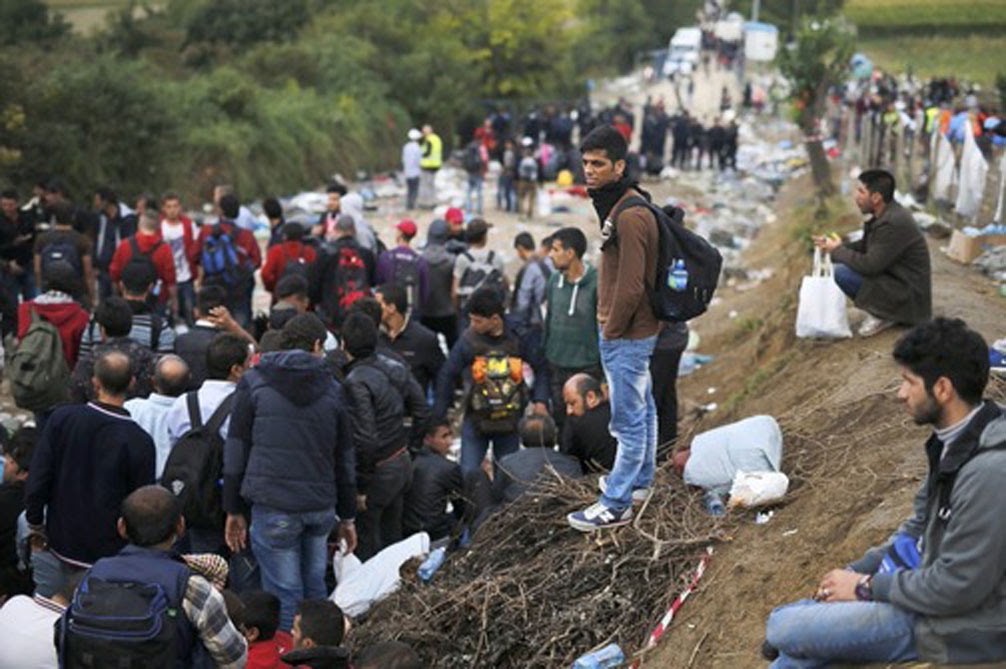

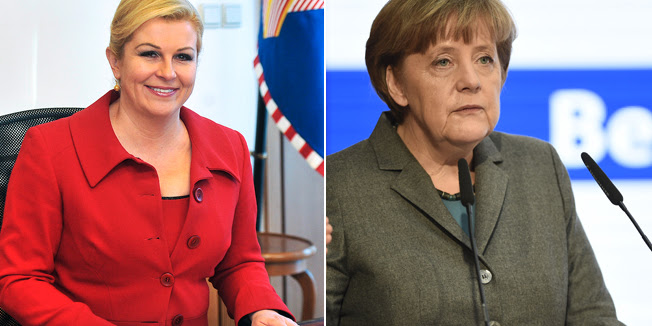
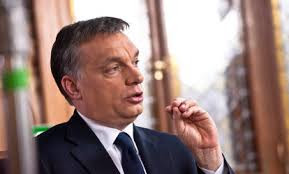

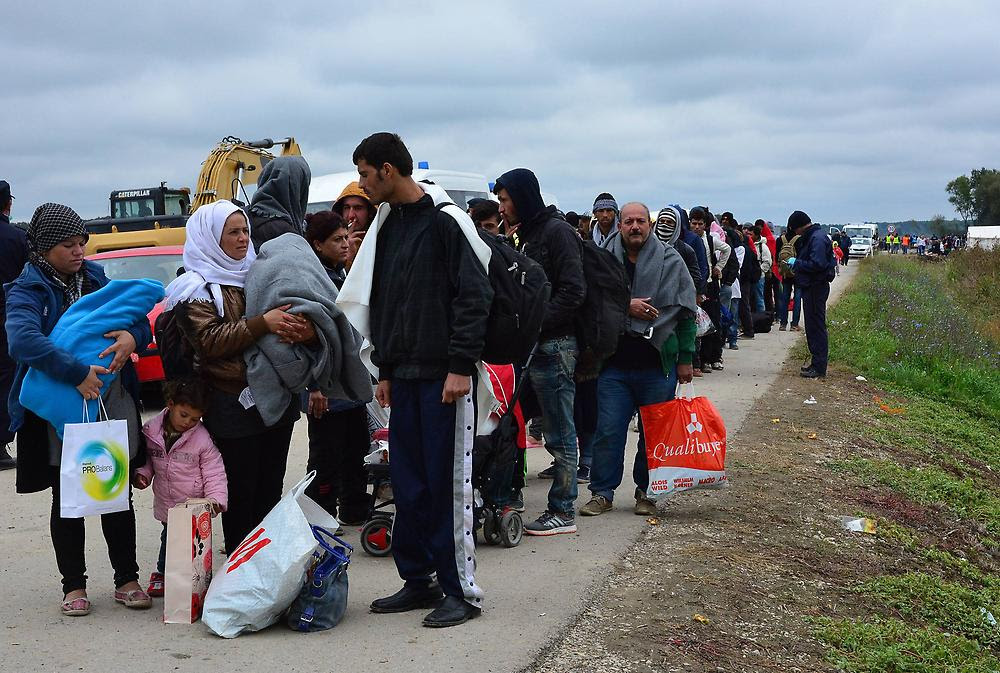
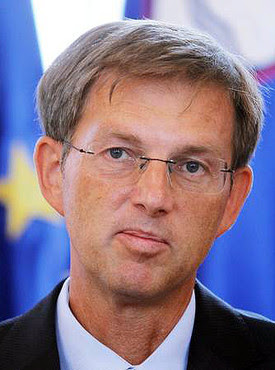
Nema komentara:
Objavi komentar